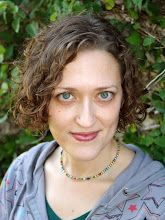Okay. I have to admit something: I’m really excited about the interview stuff that we’re working on in class right now. Last week we went over some information about conducting interviews and are preparing to put that in to practice tonight. My experience with the process of interviewing and writing up the resulting story, assessment, etc. is one of the major factors in influencing my decision to return to school for a journalism degree. I love getting an opportunity to hear someone’s story about their perspective, experiences, life in general.
When I worked for an outpatient mental health agency in St.Louis, MO, I had around 35-55 clients at any given time with everything from personality disorders to major depression or schizophrenia. One of the things I enjoyed most about the job was the opportunity to conduct the annual interviews with my clients. As we talked about the steps of interviewing in class, I thought back to my experience in these interviews.
Keeping control of the situation when you’re in a psychiatric ward with a client telling you what she’s hearing the news anchor on the sitting room television really saying; or leaning back in his chair, eyes shut, to serenade you with his best rendition of “Somewhere Over The Rainbow” at the top of his lungs, can be a challenge for the best interviewer. I had one of those situations happen early on in the job and one about a year later. I’m not sure I really made much of a change, right or wrong, in handling those situations, despite having more experience.
However, there are many other areas of interviewing in which I could clearly see a progression. Although the assessments covered specific areas, there weren’t necessarily specific questions to ask, leaving some flexibility for the case manager conducting the interview. As I became more experienced, I learned what type of questions to start off with in order to build some trust before moving on to questions that would be more difficult to open up about.
For example, I would typically try to start with questions that asked about some basic background info, what they did in their free time, how they were feeling physically before moving on to areas such as specific psychiatric symptoms or sexual issues, despite the order in which these things came up in the assessment itself. I learned to listen and write without appearing disconnected from the interviewee. I learned how to move people back to the question at hand when they went off on some (often very random) tangents. I learned when to be quiet, when to be empathetic, when not to react, and when to try to gently prod for more information. One of the biggest things I learned about interviewing is that it is truly an art. I think it could quite possibly take a lifetime of practice to perfect.
Some of my favorite programs revolve around more of a storytelling form of journalism, such as “This American Life” or “Fresh Air” on NPR. My husband’s natural ability as a storyteller was one of the things that initially attracted me to him. People crack me up. They do. And I love trying to get at WHY they do the things they do.
While this might also help explain why I decided to get a degree in psychology and counseling, I have since realized that I didn’t necessarily want to pursue people’s ‘why’s’ in that particular setting. However, I know that within journalism interviewing can take a range of forms from briefly talking to an eyewitness about a car accident they just saw to a feature article similar to what I’ve been talking about above. I’m looking forward to getting more opportunities to experiment with this particular art form, in whatever aspect it may be!

No comments:
Post a Comment